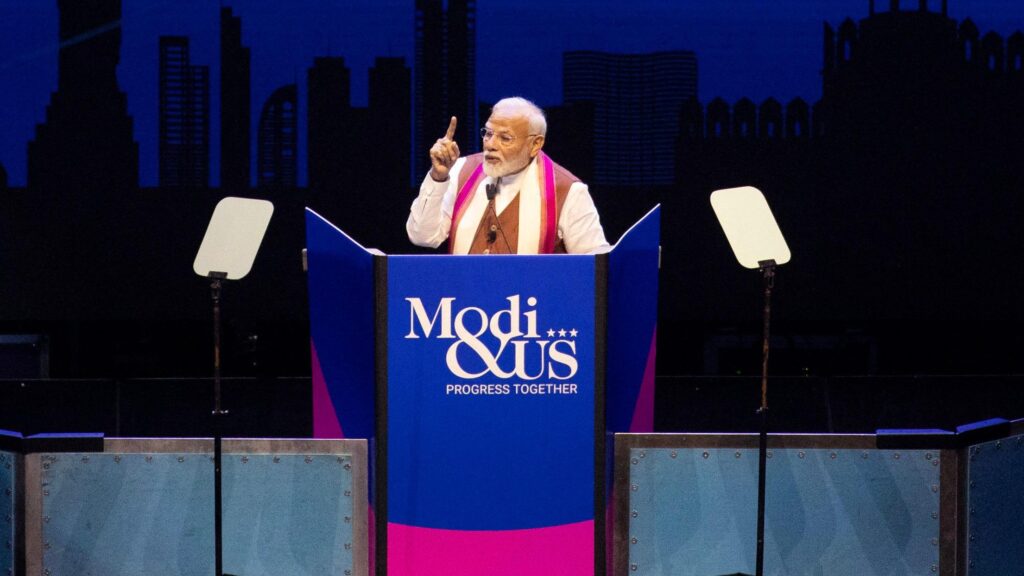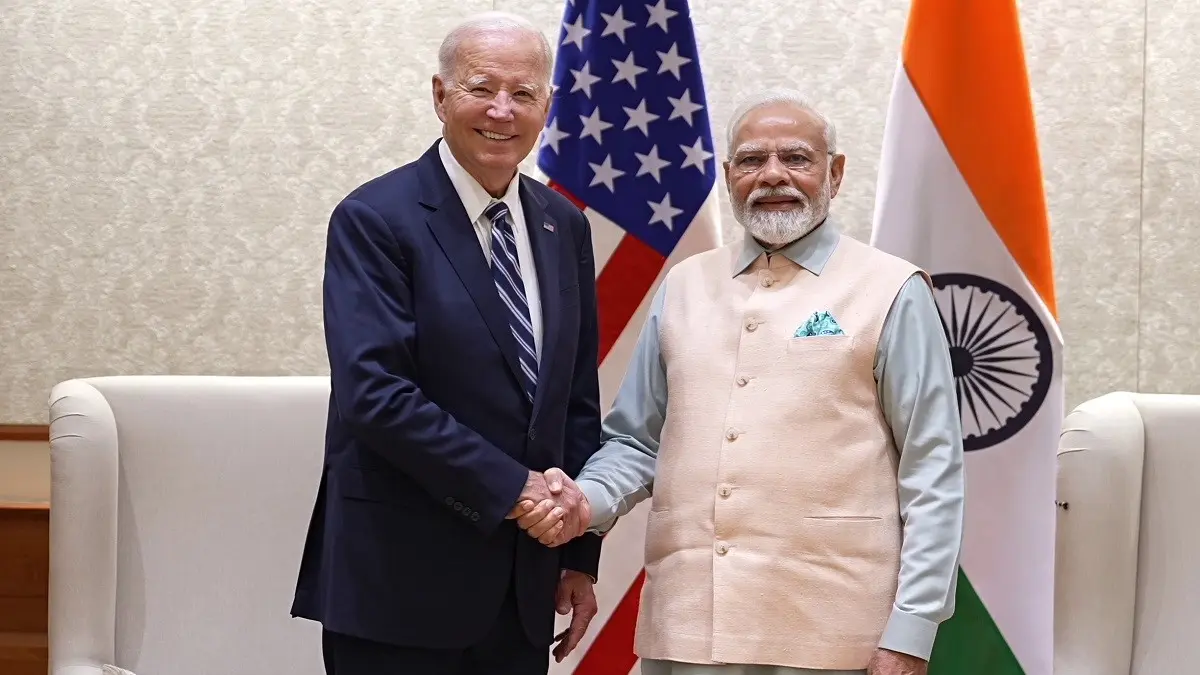
Leading US tech businesses have been asked by Indian Prime Minister Narendra Modi to consider India as a location for research and production.
One day after attending the Quad countries’ annual meeting—which also includes the US, Australia, and Japan—he met with CEOs of tech businesses in New York.
India has been marketing itself as a China substitute to draw in international businesses who want to diversify their supply chains.
Despite recent concentrated efforts on chip manufacturing, the nation still trails well behind key suppliers such as China and Taiwan.
Quinteen of the industry’s leading CEOs, including Sundar Pichai of Google, Shantanu Narayen of Adobe, Arvind Krishna of IBM, and Jensen Huang of NVIDIA, attended Modi’s meeting with the IT leaders on Monday.
“They can co-develop, co-design, and co-produce in India for the world,” Modi declared as he addressed the assembly.
The roundtable discussion included technological advancements that “have the potential to revolutionize the global economy and human development,” according to a statement from India’s foreign ministry.
Additionally, Modi spoke to a crowd of 15,000 people at a rally in New York, calling the Indian-Americans there “brand ambassadors” for their nation and emphasizing India’s importance to “global development, global peace, global climate action, global innovations, and global supply chains.”
Modi and US President Joe Biden met on the sidelines on Saturday.
Modi and US President Joe Biden signed a number of agreements on Saturday while they were together at the Quad conference.
According to a joint announcement, the India-US semiconductor agreement, which they have referred to as a “watershed arrangement,” intends to build a fabrication plant that will generate chips for use in green energy, next-generation telecommunications, and national security applications.
This is the first project of its kind between India and the US, wherein the former will supply chips to the US, its allies, and the Indian armed services.
Prior attempts to establish an indigenous semiconductor manufacturing sector in India have not yielded the expected outcomes.
But the transaction gives India a fresh lease on life as the US looks to fortify itself against China’s semiconductor industry, which is essential to modern technology.
The Indian Expressstated that “three essential pillars for modern war fighting: advanced sensing, advanced communications, and high voltage power electronics” will be the plant’s main areas of focus.
The ongoing concerns over the targeting of Sikh leaders in the US and Canada were not mentioned by either of the two leaders or in their joint statement. Leaders of the Sikh separatist movement, who have long called for the creation of a separate nation within India, claim they have been the target of threats and assassination attempts from organizations supported by India. India refutes the accusations.

